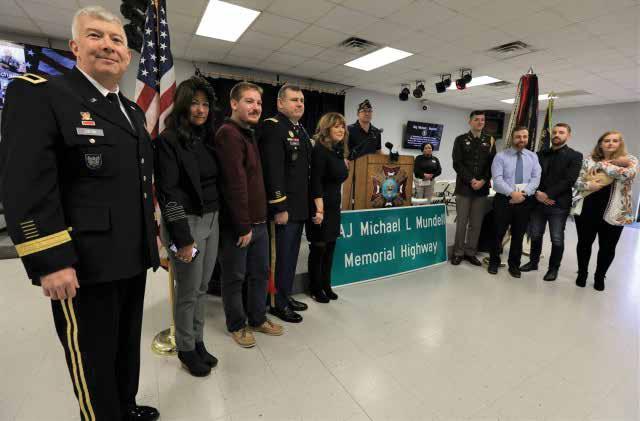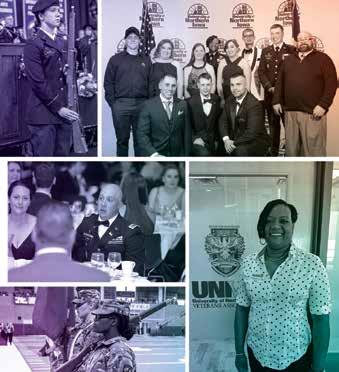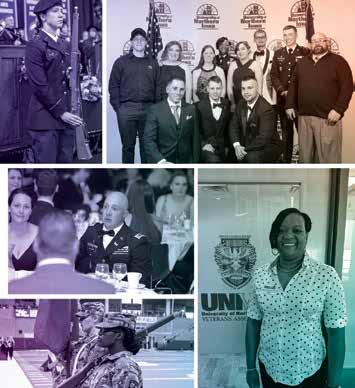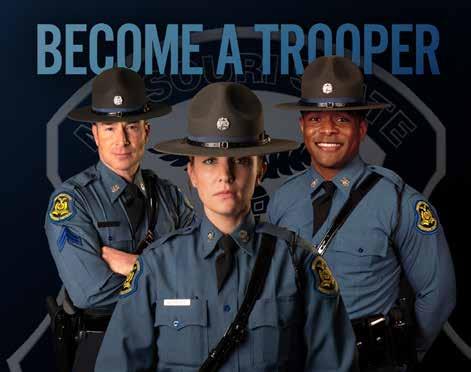
4 minute read
DOING THE RIGHT THING DURING DIFFICULT TIMES
On a relatively cool Iraqi day on January 5, 2007 an M1114 up armored HMWWV maneuvered to assist a U.S. Marine Corps Abrams tank that was damaged by Improvised Explosive Devices (IEDs) during operations in the vicinity of Fallujah, Iraq. The M1114 belonged to Military Training Team (MiTT) 0121 “Corsairs,” an eleven-member team that had been deployed since July of 2006 to advising 1st Battalion or “Kandak” of 2d Brigade, 1st Iraqi Army Division. As the HMWWV continued to approach the damaged tank another IED detonated off to the right of the vehicle, penetrating the cabin of the vehicle and causing multiple traumatic injuries, wounding four crew members and killing the vehicle commander, Maj. Mike Mundell.
Recently I was honored to participate in a memorial service for Maj. Mundell. Fifteen years after his sacrifice, The Commonwealth of Kentucky dedicated a portion of Kentucky Highway 1638 near his home as the Maj. Michael Mundell Memorial Bypass. The majority of his family still lives in the area, and now includes grandchildren that he never got to meet. I didn’t know
Advertisement
Maj. Mundell personally, but others who still work at Fort Knox did, and they all characterize him as a dutiful Soldier who always found the best in all situations regardless of circumstance.

At the time the 108th was a Training Division and was designated as the administrative headquarters for USAR Soldiers forming advisor teams. Maj. Mundell had spent most of his reserve time with the 100th Division at Fort Knox and reported to Fort Hood to integrate with his new team in May of 2006 as a new member of the Golden Griffon Division, forming with the MiTT Team that would take the callsign


“Corsairs.” Multi-National Security Transition Command – Iraq (MNSTC-I), the newly formed command to oversee these efforts, awaited these newly sourced teams of advisors. In keeping with our military’s fondness for acronyms, the teams were originally labeled according to their function, such as Military Transition Team, Coalition Military Assistance Transition
Team (CMATT) or National Police Transition Team (NPTT) before all being referred to as Security Force Advisor Teams (SFATs) nearly half a decade later. The 108th eventually deployed over 350 Soldiers in support of MNSTCI’s training mission. Training for these various teams lasted for six weeks followed by deployment to Kuwait, with follow on movement into their respective parts of Iraq. After the memory of the first Gulf War, deploying as advisors to a country whose military we had recently overcome was probably not in the front of most Soldier’s minds, let alone Army Reservists that were called to do so. The rapidity at which this mission was organized coupled with the lack of unity among simply what to call the advisor teams highlights both a strength and challenge of the advising effort. There were no clear-cut answers or paths forward in 2006, and that is likely true in any potential operations today. His story should serve as an example to everyone in the 108th, and the Army Reserve. Many of us in the 108th served on advisor teams as Maj. Mundell did, and we can empathize with how chaotic the advising effort seemed in early 2006 and 2007. Teams of Reserve Soldiers, National Guardsmen and others deployed answering the call of their nation, being told that the most important thing they could do for the Army was report to Iraq or Afghanistan and train our host nation partners to fight an insurgency. He didn’t say he had other things to do when the Army Reserve was called to provide Combat Advisors to stabilize an ambiguous situation. Corsair 3 didn’t ensure he planned operations so that the team advised from the rear, they were out in the field with their Iraqi partners. Maj. Mundell didn’t say that his job was only to advise, not directly participate in combat actions. He was told fellow Americans, US Marines, were in potential jeopardy, and he led his vehicle to assist, paying the highest price to do what was right at that moment.
The Army Reserve asks a lot from all of us. It has asked for even more in the past. The Army doesn’t expect that all Reservists will be experts in every task. But what all of us should expect from one another, is that we will answer the call of duty even under difficult conditions, conditions that are not expected, because that is what our country needs, and our fellow Soldiers are counting on. It does not always follow what we may expect to encounter in our careers. Maj. Mundell probably never thought he’d operate on an independent small team advising foreign forces. Up until September 11, 2001 he probably thought if he were ever deployed it would be in a conventional role. But when that call came, he and thousands like him answered it. And did the best they could during difficult times. Similarly, none of us that serve can accurately predict the future. There are tensions in the world that could lead to any number of contingencies requiring Reserve forces, many of which are a far cry from whatever it is you think you may be doing with your unit in the event of a conflict. Conflicts in eastern Europe could require a specific type of unit not yet dreamed of, but potentially staffed with Reserve Soldiers. Or just as likely in the current geopolitical environment, our Soldiers could find themselves in some kind of logistics chain role on a small island in the middle of the Pacific Ocean, passing supplies along to the US Navy, Marine Corps and Air Force. But as Reserve Soldiers, we can demonstrate that we bring training, dedication and tenacity to meet any challenge. That is what Maj. Mike Mundell demonstrated that day, along with literally thousands of other Reserve Soldiers. Doing the right thing in the most difficult of circumstances. That is a legacy all of us should strive to honor and uphold.











